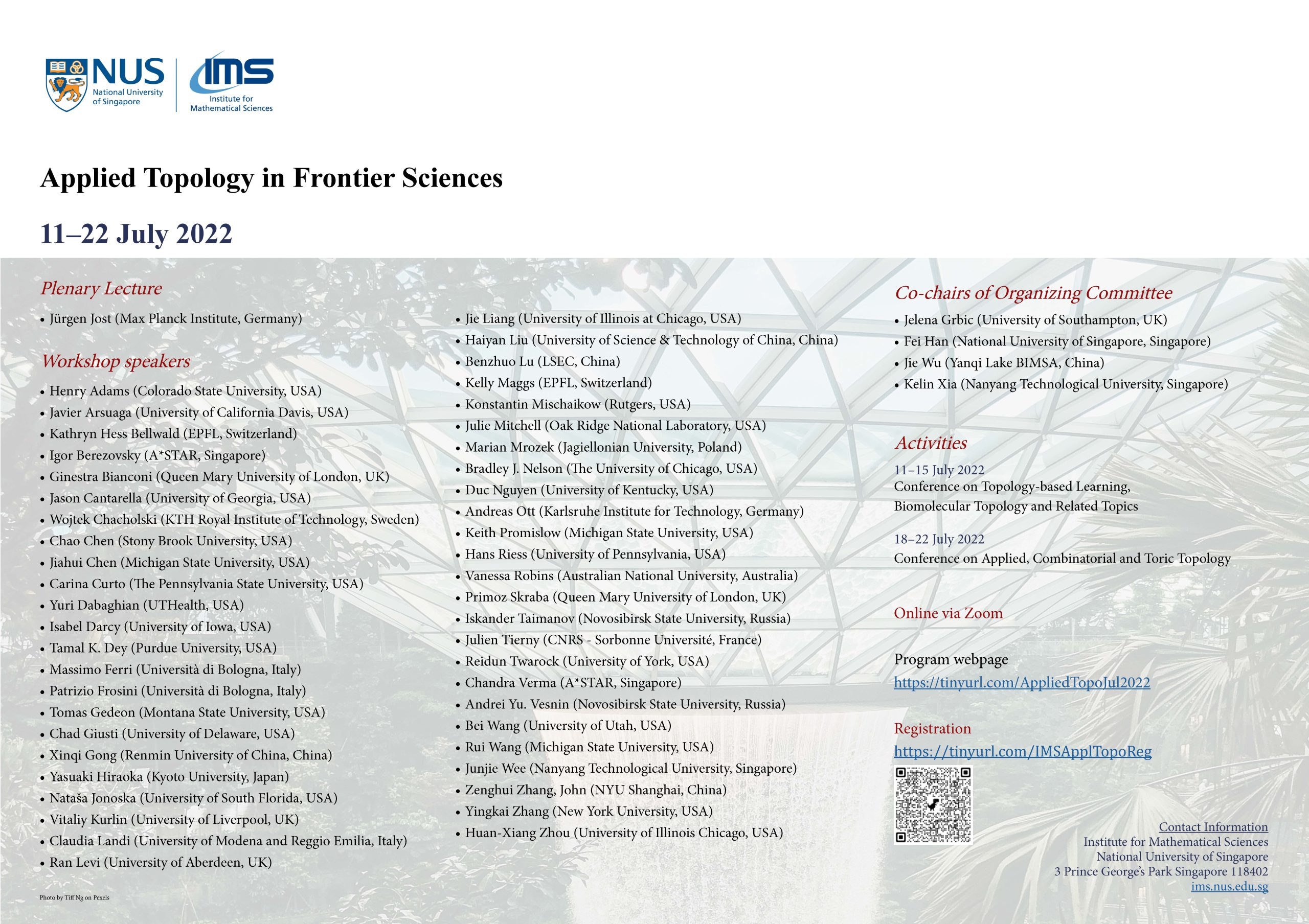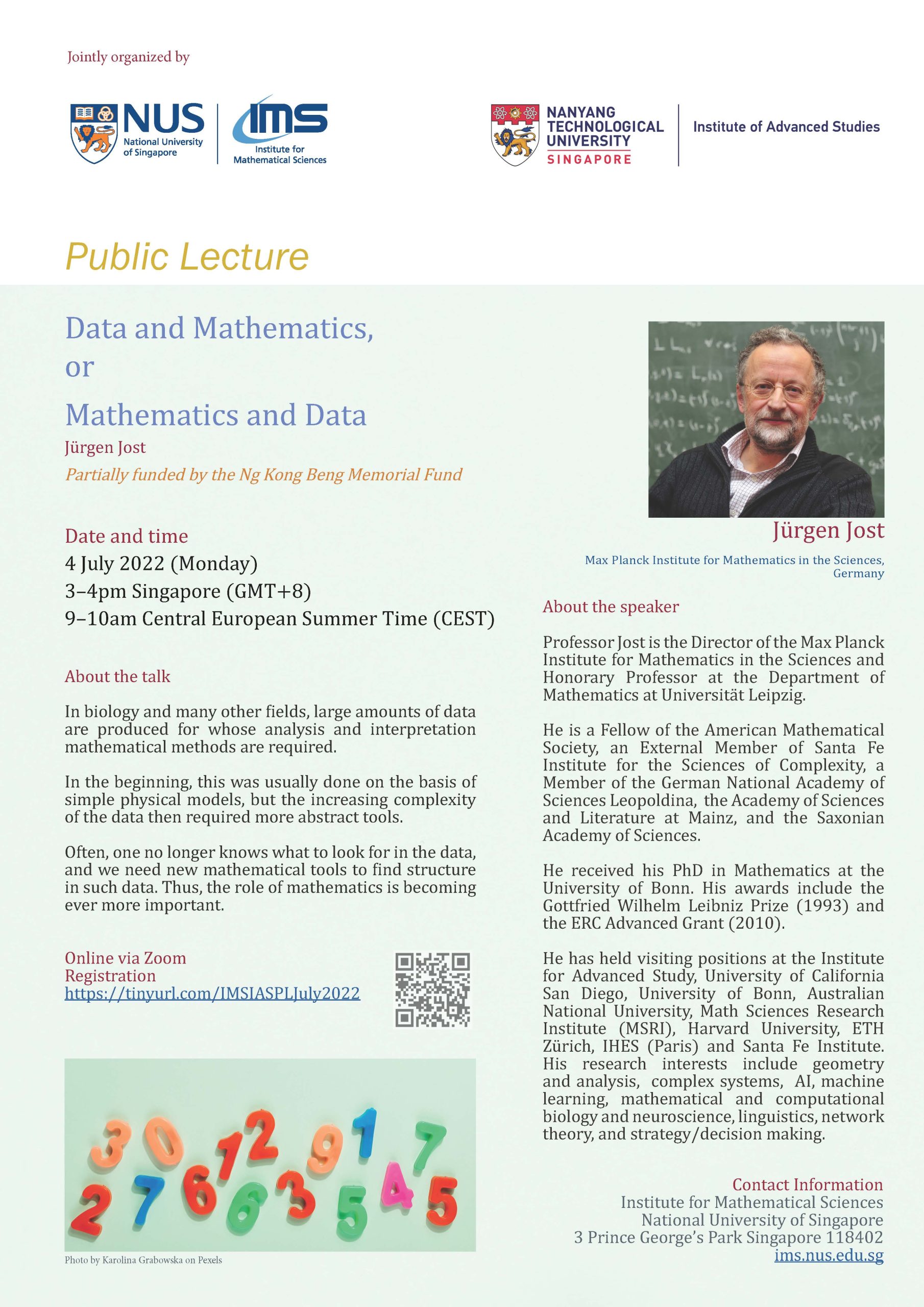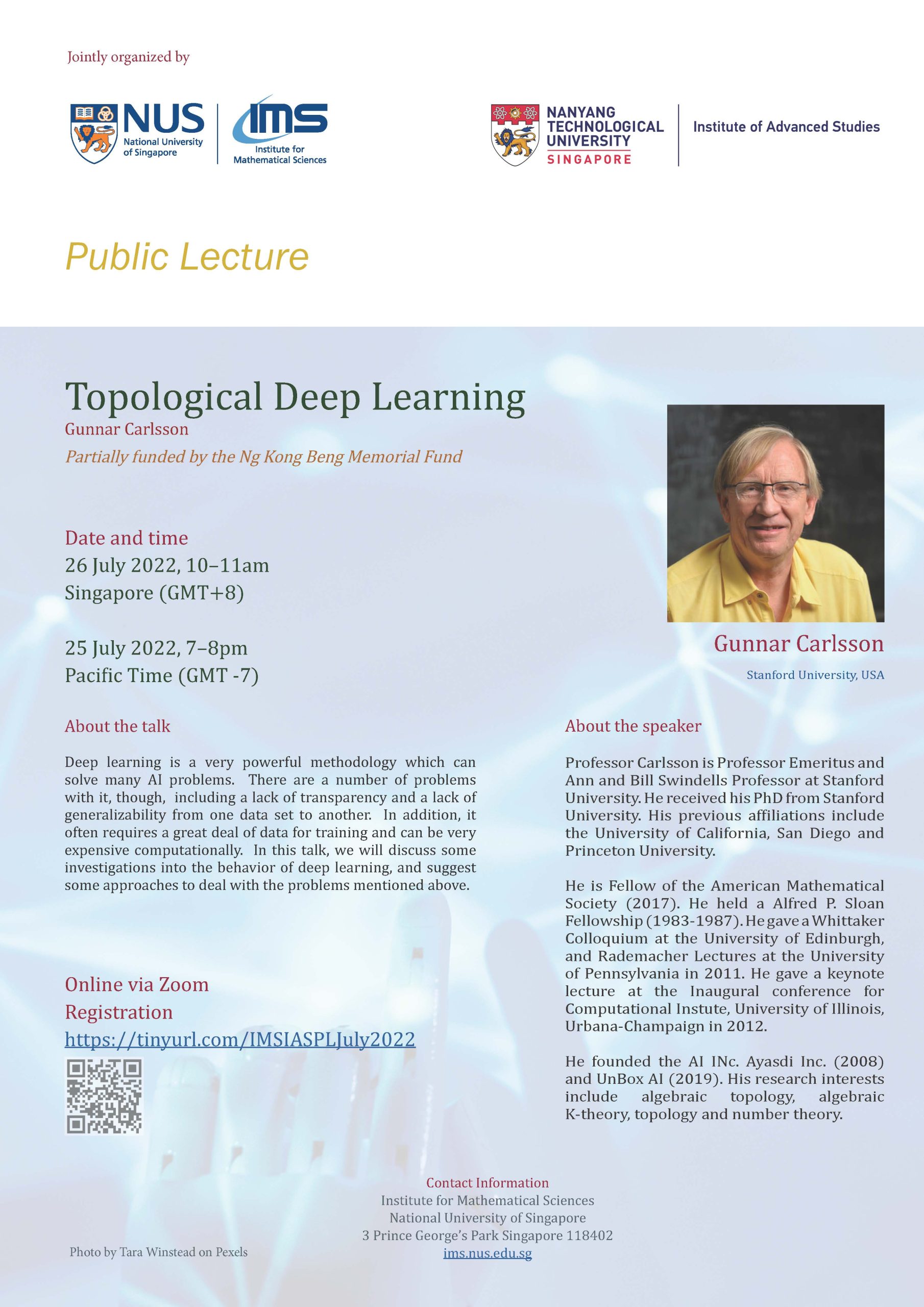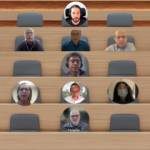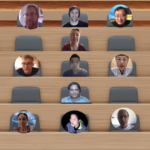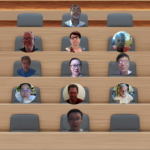Organizing Committee
Co-chairs
- Jelena Grbic (University of Southampton)
- Fei Han (National University of Singapore)
- Jie Wu (Yanqi Lake Beijing Institute of Mathematical Sciences and Applications)
- Kelin Xia (Nanyang Technological University)
Members
- Fengchun Lei (Dalian University of Technology)
- Zhi Lu (Fudan University)
- Vidit Nanda (University of Oxford)
- Yanying Wang (Hebei Normal University)
- Guowei Wei (Michigan State University)
Contact Information
General Enquiries: ims-enquiry(AT)nus.edu.sg
Scientific Aspects Enquiries: wujie(AT)hebtu.edu.cn
Overview
Artificial intelligence (AI) and modern biology are among the most important scientific areas that can bring about technological revolution and can fundamentally change the landscape of society. Even with the great advancement and consistent progress, various problems and challenges still exist, and the solving of these problems and challenges calls for new mathematical methods and models. Even as a pure mathematical subject, topology, including algebraic topology, differential topology, geometric topology, combinatorial topology, has already demonstrated its great power in DNA structure analysis, graph/network models, and topological insulator. Recently, applied topology, in particularly topological data analysis (TDA), has demonstrated great promise in various aspects of AI and molecular biology. The primary aim of the current program is to introduce the frontier applied topology in these two areas.
With the ever-increasing amount of data accumulated in various areas, AI technologies, including machine learning, deep learning, data mining, etc, have demonstrated their enormous power in image processing, video, audio, computer vision, etc. Currently, one of the key research topics for AI is to understand the working mechanism of the neural networks, i.e., the AI “black-box”. Persistent homology, a major tool in TDA, has been used in the characterization of the decision boundary, network hierarchical structures, adversary detection, generative adversarial network comparison, etc. Even at its very beginning stage, TDA has demonstrated great potential in this area. Another important application of TDA in AI is feature engineering or feature representation. The generation and selection of suitable features that best characterize the data are key to all learning models, especially for heterogeneous data with different sizes, structures and various properties. Topological features that capture the intrinsic data information have already been found to be of great potential in structure featurization. Interestingly, Hodge theory, as the main topological tool for the geometric approach to (co)homology, has also been applied in data analysis, such as movie ranking, currency exchange, biomolecular data, etc. Such topological tools with more geometric flavour will surely find richer and deeper applications in frontier sciences. Topology together with optimization, probability theory, linear algebra and graph theory have listed as five commonly used mathematical tools in data science.
Topology contributes greatly to modern biology. Topology has been widely used in DNA supercoiling, assembly of virus capsids and the design of DNA origami. In particular, DNA knot theory has helped to reveal the enzyme mechanisms in DNA packing, recombination and replication. Recently, TDA and TDA based machine learning have provided a potentially revolutionary approach to complex biomolecular systems. With the topological representation and characterization, biomolecular structure and function information are embedded into topological features that are combined with various machine learning and deep learning models. These topology-based models surpass all of the existing tools in the prediction of protein-ligand binding affinity, binding free energy and mutation-induced protein folding energy. Topological models consistently deliver the best results in D3R Grand Challenge 2, 3, 4, the worldwide competition in computer-aided drug design. Another potential revolutionary application is the topology in the human brain network. Topological tools, such as simplicial complex, cliques, cycles, homology, etc, brings new way and new insights into the characterization of brain functions and dynamics.
These activities will be preceded by Yanqi Lake Beijing Applied Topology Program in Artificial Intelligence and Biological Sciences-BIMSA including
- Summer School on Applied Topology (BIMSA), 6 June–1 July 2022
- The 2nd Young Topologist Seminar (BIMSA), 4–8 July 2022
The pre-event of the workshop will take place at BIMSA. The webpage is: http://www.bimsa.cn/newsinfo/628446.html
Activities
| Date | Abstract | |
|---|---|---|
| Conference on Topology-based Learning, Biomolecular Topology and Related Topics | 11-15 July 2022 | View |
| Conference on Applied, Combinatorial and Toric Topology | 18-22 July 2022 | View |
Venue
Online event

